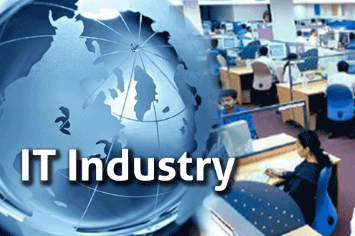The Ever-Evolving World of Technology
Introduction
Technology has become an inseparable part of our lives, revolutionizing the way we work, communicate, and interact with the world. From the dawn of the internet to the rise of artificial intelligence, technological advancements have consistently pushed the boundaries of human possibility. This article delves into the multifaceted world of technology, exploring its key aspects, recent trends, and the profound impact it has on our society.
1. Key Areas of Technological Advancement
- Artificial Intelligence (AI): AI is arguably the most transformative technology of our time. Machine learning algorithms are powering breakthroughs in various fields, including:Healthcare: AI is assisting in disease diagnosis, drug discovery, and personalized medicine.
- Finance: AI-powered systems are detecting fraud, automating trading, and providing personalized financial advice.
- Autonomous Vehicles: Self-driving cars are becoming increasingly sophisticated, promising to revolutionize transportation.
- Internet of Things (IoT): The IoT connects everyday devices to the internet, enabling them to collect and exchange data. This has led to the emergence of smart homes, smart cities, and industrial automation.
- Biotechnology: Advances in biotechnology are revolutionizing healthcare, agriculture, and environmental science. Gene editing technologies like CRISPR-Cas9 are opening up new possibilities for treating genetic diseases.
- Blockchain Technology: Blockchain is a secure and transparent distributed ledger that has the potential to revolutionize various industries, including finance, supply chain management, and voting systems.
- Cloud Computing: Cloud computing provides on-demand access to computing resources, such as servers, storage, and databases. This has enabled businesses to scale their operations quickly and efficiently.
2. The Impact of Technology on Society
Technology has had a profound impact on society, both positive and negative.
Positive Impacts:
- Increased Efficiency and Productivity: Technology has significantly increased efficiency and productivity across various
1 sectors, from manufacturing to healthcare. - Improved Communication and Connectivity: Technology has connected people across the globe, facilitating communication and collaboration.
- Enhanced Access to Information: The internet has democratized access to information, empowering individuals with knowledge and resources.
- Advancements in Healthcare: Technological advancements have led to significant improvements in healthcare, including the development of life-saving treatments and diagnostic tools.
- Improved Quality of Life: Technology has improved our quality of life in numerous ways, from entertainment and leisure to education and social interaction.
Negative Impacts:
- Job Displacement: Automation and AI are leading to job displacement in certain sectors.
- Privacy Concerns: The collection and use of personal data by technology companies raise significant privacy concerns.
- Cybersecurity Threats: The increasing reliance on technology has also increased the risk of cyberattacks, such as data breaches and ransomware attacks.
- Social Isolation: Excessive use of technology can lead to social isolation and mental health issues.
- Environmental Impact: The production and disposal of electronic devices can have a significant environmental impact.
3. The Future of Technology
The future of technology is brimming with exciting possibilities.
- Artificial General Intelligence (AGI): The development of AGI, machines with human-level intelligence, is a major goal for many researchers.
- Quantum Computing: Quantum computers have the potential to solve complex problems that are beyond the reach of classical computers.
- Space Exploration: Technology is playing a crucial role in space exploration, enabling us to explore new frontiers and potentially discover new forms of life.
- Sustainable Technologies: The development of sustainable technologies, such as renewable energy sources and carbon capture technologies, is critical for addressing climate change.
4. Ethical Considerations in Technology
As technology continues to advance, it is crucial to consider the ethical implications of its development and use.
- AI Ethics:
- Bias and Discrimination: AI systems can inherit and amplify biases present in the data they are trained on.
- Transparency and Explainability: It is important to ensure that AI systems are transparent and explainable, so that we can understand how they make decisions.
- Accountability: Determining who is responsible for the actions of AI systems is a complex legal and ethical challenge.
- Data Privacy and Security:
- Protecting user data is paramount, and robust data privacy regulations are essential.
- Cybersecurity measures must be strengthened to protect against cyberattacks and data breaches.
- Digital Divide:
- Ensuring equitable access to technology and digital literacy for all is crucial to prevent further marginalization.
5. The Role of Education in the Technological Age
Education plays a critical role in preparing individuals for the challenges and opportunities of the technological age.
- Developing Digital Literacy:
- Students need to develop essential digital literacy skills, including critical thinking, problem-solving, and digital citizenship.
- Promoting STEM Education:
- Investing in STEM education (Science, Technology, Engineering, and Mathematics) is crucial for developing a skilled workforce in the technology sector.
- Fostering Creativity and Innovation:
- Education should foster creativity and innovation, enabling students to develop new ideas and solutions to complex problems.
Conclusion
Technology has transformed our world in profound ways, and its impact will only continue to grow in the years to come. By understanding the key areas of technological advancement, the impact of technology on society, and the ethical considerations involved, we can navigate the challenges and harness the opportunities of this transformative force.







